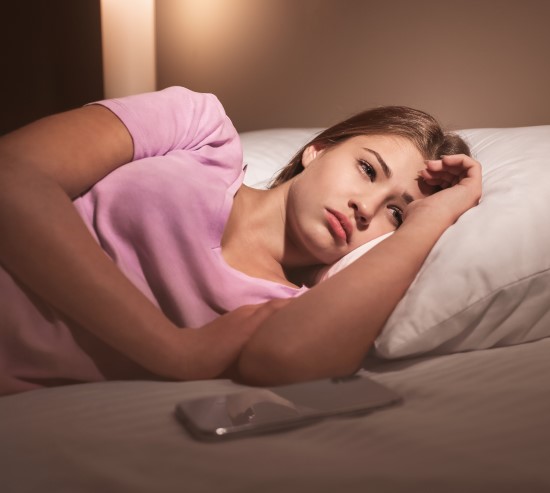
11 Alarming Facts About the Teen Sleep Crisis
By Jason Wooden, PhD | September 13, 2024
Houston, we have a teen student sleep problem…and its global
Raise your hand if you have a teen that struggles with sleep.
You’re certainly not the only one.
As a father of teens, I’ve been shocked by how many adolescents have bad sleeping habits and struggle with sleep. The stories I’ve heard run the gambit.
Teens binge watching their favorite program till the wee hours of the morning…
Teen students falling asleep during class…
There are also the teens who wake up late and show up late to school even if they live nearby.
And I’ve seen my own teens struggle with sleep at various times for various reasons.
Welcome to the modern world.
It’s a world where on any given day all too many teens fall short of the 8 to 10 hours of sleep recommended by the American Academy of Sleep Medicine.
And it’s now a problem for teens worldwide for varying reasons.
It’s an epidemic where millions of teen students are paying the price for poor sleep.
Let’s take a look at some alarming facts about teen sleep that have seemed to fly under the radar.
11 Alarming Facts about the Teen Sleep Crisis
Unfortunately, way too many teens are struggling with sleep at night and spending their days half-awake. It’s affecting their school performance, health and wellness, and other things in serious ways
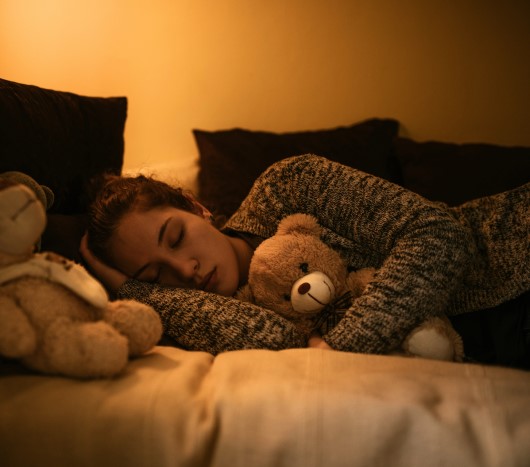
#1
87% of US high school students get far less than the recommended 8 to 10 hours
A National Sleep Foundation Poll found that most US teens are sleep-deprived to varying degrees. Unfortunately, this stark finding has been confirmed in more recent studies showing as many as 70% of high school students get less than the recommended amount.
Research shows poor sleep is now a problem for teens worldwide.
That’s a whole lot of dreary-eyed teens…

#2
35% of teens say stress has caused them to lie awake at night in the past month
Stress and anxiety are among the most common challenges for sleep. Studies show stress is keeping as many as a third of our teens up at night.
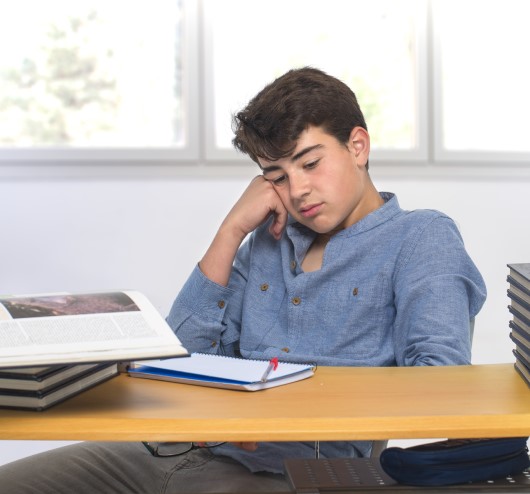
#3
53% of teens report feeling sluggish or lazy after a bad night’s sleep
Unfortunately, it’s not just sluggishness they’re dealing with. According to a Stress in America™ survey, 42% of teens experiencing high stress are irritable and 32% said they couldn’t concentrate.

#4
Roughly 1 in 4 teens say their grades have dropped because they’re drowsy
Restful sleep is critical for focus, learning, memory consolidation, and recall.
It’s no surprise teens who sleep poorly are performing more poorly on assignments and tests. A Sleep Junkie! survey found that teens who average 8.1 hours scored mostly As while those averaging 7.3 hours scored mostly Cs.
Who would think that the loss of a single hour of sleep could have such a big impact?
Researchers have found that lack of sleep can cut learning ability by up to 40%!
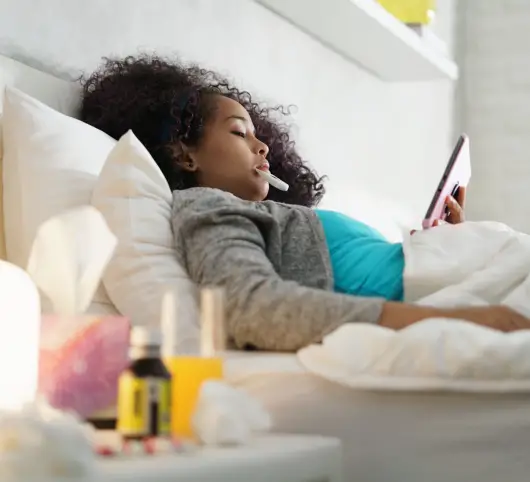
#5
Sleep-deprived teenagers are more prone to health issues
Sleep is essential to healing, recovery, and proper functioning of the immune system. So, it’s no surprise sleep-deprived teens are more at risk for skin problems such as acne, colds and the flu, weight gain, and diabetes.
In fact, one study found that teens who sleep less than 8 hours were more likely to be resistant to insulin which can lead to type 2 diabetes
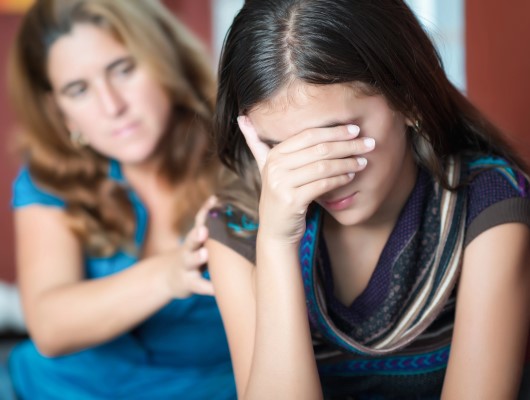
#6
56% of sleep-deprived teens say they are stressed out and anxious
There’s a strong link between sleep and mood. A National Sleep Foundation survey found that many sleep-deprived teens frequently struggle with depression.
More than half said they were also stressed out and anxious.
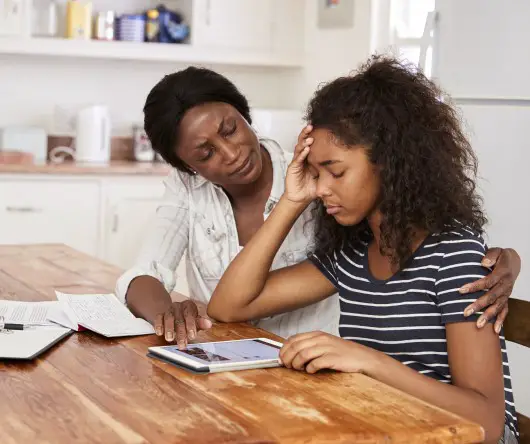
#7
Teens who sleep fewer than 8 hours are more likely to get stressed
The only surprise here is that 8 hours appears to be the tipping point. The same survey also found that they are more likely to feel irritable, anxious, depressed, and sad.
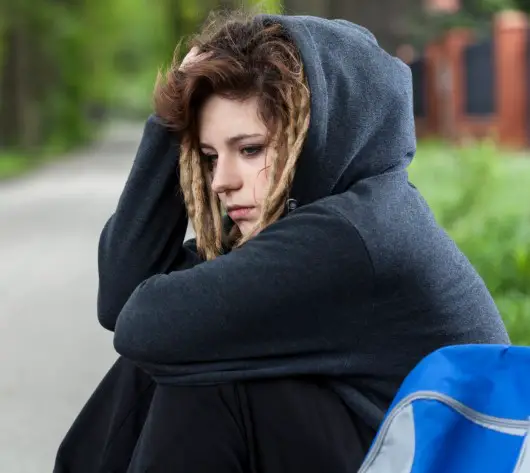
#8
Every hour of lost sleep is associated with a 38% increased risk of feeling sad or hopeless
I’ve already mentioned the link between sleep and mood. So, it’s no surprise that sleep-deprived teens are more at risk for mental health challenges.
The same study found that each hour of lost sleep was linked to a 23% increased risk for substance abuse and a 58% increased risk for suicide attempts.
That’s sobering.

#9
Teens who sleep poorly are more likely to struggle with mental health LATER in life
This is a startling discovery by researchers in the UK. The study found that young adults who experienced anxiety and depression overwhelmingly struggled with poor sleep during their teens.
It shows how far-reaching the effects of teen sleep-deprivation can be.
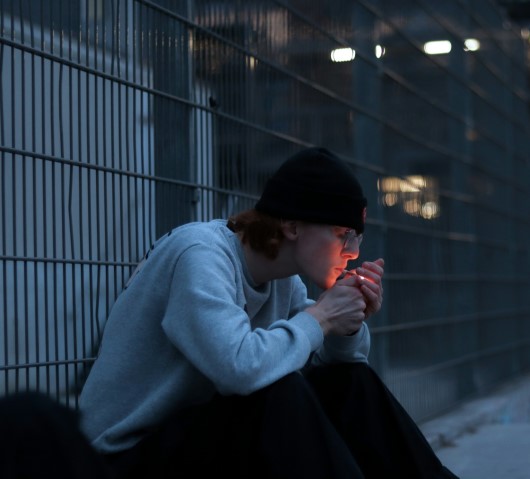
#10
Sleep-deprived teens are more likely to use stimulants to get through the day
Some teens are turning to caffeine and nicotine to make it through the day. Have you noticed how popular monster energy drinks have become among teens?
Ditto, vaping.
Unfortunately, the same stimulants can make it harder to fall asleep and stay asleep at night.
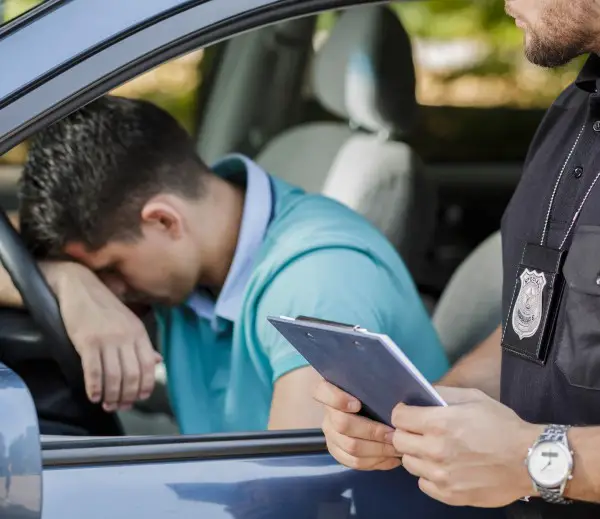
#11
Teens who don’t get adequate sleep are more likely to do risky things
Sleep affects decision making and moral judgement. Studies have found that the part of the brain responsible for logical reasoning and complex thought is vulnerable to sleep deprivation.
So, it’s no surprise sleep-deprived teens are more likely to engage in risky behaviors such as reckless driving or unprotected sex.
There’s too much at stake to accept the status quo
We’ll that’s quite a sobering list.
For something as serious as this affecting so many teens you would think there would be more people shouting from the rooftops.
All the same , it is what it is.
If you’re feeling overwhelmed or don’t know what to do, don’t give up.
The cost is just too high to accept the status quo – mood, focus, academic performance, mental health, and wellness. There’s also strained relationships, stress, worry, and all the turmoil that comes when a teen is struggling with sleep.
As bad as things may appear, there’s plenty you can do to help a teen sleep better:
1) Start with sleep hygiene, the basic habits that set the stage for restful sleep:
- keep regular wake up and sleep times
- avoid naps
- exercise during the day
- avoid large meals, alcohol, or stimulants such as caffeine before bedtime
- maintain a bedtime routine that prepares you for sleep
- keep your bedroom quiet, dark, and cool
- avoid electronics use in the bedroom
2) See a doctor to check for underlying health issues that affect sleep such as asthma, allergies, and sleeping disorders
3) See a therapist to help with mental health challenges that make it harder to sleep
Sleep in Middle and High School Students, CDC website
https://www.cdc.gov/healthyschools/features/students-sleep.htm
The Impact of Sleep on Learning and Memory, University of Pennsylvania website
https://www.med.upenn.edu/csi/the-impact-of-sleep-on-learning-and-memory.html
8 Ways Teenagers Suffer When They Don’t Get Enough Sleep, ChildNEXUS
https://www.childnexus.com/blog/article/8-ways-teenagers-suffer-when-they-don-t-get-enough-sleep
Sleep Deprivation Affects Moral Judgment, American Academy of Sleep Medicine website
https://aasm.org/journal-sleep-sleep-deprivation-affects-moral-judgment/
Connect with us:
About Us
Better Sleep Simplified® was founded as a place for you to get clear and well-researched information.
Our goal is to make sure you know about your options so that you take action sooner rather than later.
Check us out on YouTube:
Watch and Learn
Helpful sleep tips, interesting sleep facts and statistics you want to know about
Affiliate Disclosure
This site is a participant in the Amazon Services LLC Associates Program and other affiliate advertising programs designed to provide a means for sites to earn advertising fees by advertising and linking to them.
Important: BetterSleepSimplified.com is for informational purposes only and is not intended or implied to be a substitute for professional medical advice, diagnosis, or treatment. Always consult a physician for sleep and health concerns. See additional information.
